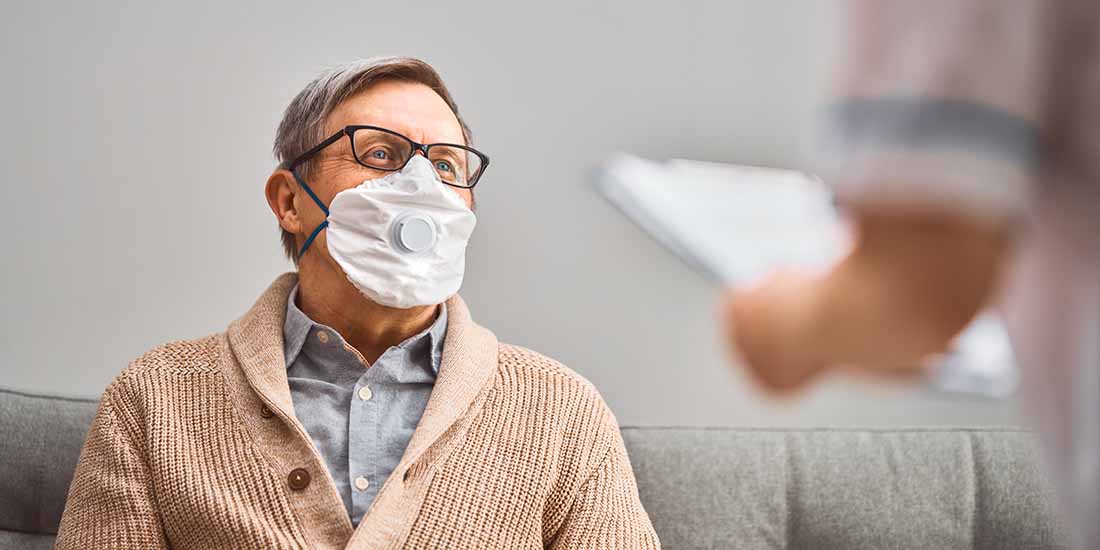 Contact
About Us
Articles
Home
Contact
About Us
Articles
Home

There's some jarring news out of the Centers for Disease Control (CDC) this summer. COVID-19 has had a massive effect on mental health. According to recently released data, nearly 11% of participants had considered suicide in the summer of 2020. That is nearly double the rate that was reported in a similar study from 2018.
This news may be a call to action to anyone in the position to recognize and address the signs and symptoms of elevated anxiety and deteriorating mental health in those around them.
Take a moment to learn about who is at risk, how to recognize the warning signs and how to access resources that could potentially save a life.
Essential workers, people of color and caregivers of older adults are at a notably higher risk, according to CDC data.
Here is a breakdown of the data by group:
This goes to show that the COVID-19 has impacted the mental health of people from all walks of life. However, those who were already struggling with mental health may feel overwhelmed by both fear of the illness and worry over broader societal issues.
Another group — not surveyed in this particular study — but at increased risk are older adults. "It is expected that in the post-pandemic months, there will be a surge in various mental health issues, and a significant proportion of them might be the elderly," say researchers exploring the psychosocial impact of COVID-19 on elderly populations as they are forced to deal with increased isolation, altered care plans and reduced wellness visits. The fear that comes with being in the demographic with the highest COVID-19 mortality rates also can create anxiety, panic and depression among senior citizens.
It’s no surprise that the global pandemic has led to increased rates of stress and anxiety. Certain mental health conditions, including anxiety disorders, are related to a higher risk of suicide.
One thing that can help is understanding how to recognize symptoms of clinical depression and anxiety in a loved one or yourself and knowing how, when and where to get help.
Ultimately, there is both an individual and widespread cry for help being delivered by people suffering from anxiety and despair during COVID-19. Mental-health and medical professionals are receiving this call at a time when they are already overwhelmed by the disorientation created by COVID-19 throughout the medical community. While government agencies and medical professionals play vital roles in connecting patients and at-risk people with access to care and resources, all of us can recognize warning signs.
People with elevated anxiety can demonstrate many physical and cognitive symptoms. In someone under extreme psychological pressure due to COVID-19, the overwhelming anxiety may manifest in the form of a panic attack. Here's a look at signs of elevated anxiety:
It's not always easy to spot symptoms of elevated anxiety because many people become masters at "masking" what they're going through. For some, the fear of burdening others with their problems makes them want to hide what is happening. Others are too ashamed to discuss what they are experiencing.
Detecting anxiety and other mental health issues in the elderly can be especially tricky because older adults may attempt to disguise cognitive decline or mental-health issues because they fear that they will lose their independence. Seniors will often disengage from loved ones to avoid "being detected" when they know that something is off.

Unfortunately, social distancing makes it difficult to “reach out” to friends and family using conventional methods. However, there are still ways to provide support and encouragement. Here's a quick rundown of suggestions to make when someone is in a state of elevated anxiety:
You may have concerns that the situation is more than you can handle alone. These basic techniques may not be effective or appropriate if a person has expressed suicidal thoughts. Next, take a look at some must-know resources for crisis situations.
In these times of growing concerns over mental health, we all need to have a strategy for what to do when someone discusses having suicidal thoughts or thoughts of self-harm. First, always assume that a person is telling the truth when they talk about suicidal thoughts. It is a mistake to dismiss someone's words as being “dramatic” or “trying to get attention.” You should instead treat this as a life-or-death situation. Many public resources can help you answer a cry for help if you believe that someone is suicidal. Here is a checklist of resources to help someone going through a severe mental health crisis:
While most people with anxiety are not suicidal, having resources on hand could potentially save a life. Even non-suicidal people suffering from elevated anxiety can benefit from free, accessible resources for talking with professionals if they are in crisis.
Alliance America is an insurance and financial services company. Our financial professionals can assist you in maximizing your retirement resources and achieving your future goals. We have access to an array of products and services, all focused on helping you enjoy the retirement lifestyle you want and deserve. You can request a no-cost, no-obligation consultation by calling (833) 219-6884 today.


